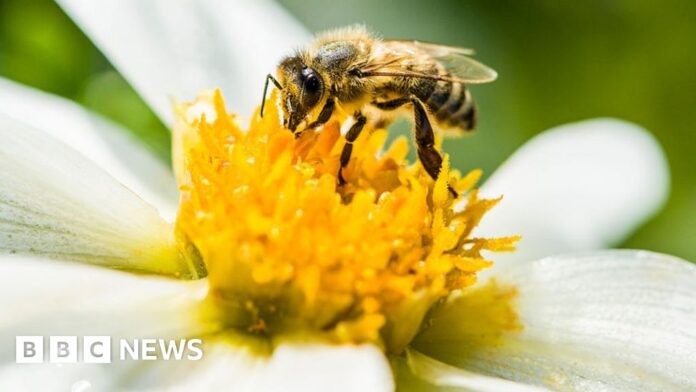In the scorching morning heat Thai Sade brushes the avocado trees he will soon artificially pollinate.
Based on a moshav, or collective farm, in central Israel, Mr Sade is the founder of tech firm BloomX. He says that the company has found a way to mechanically pollinate crops in a similar way to bees.
“We are not replacing bees… but rather, offering more efficient pollinating methods to farmers, and reducing the dependence on commercial honeybees,” he says.
Three out of every four crops grown around the world to produce fruits or seeds for human consumption are reliant, at least in part, on pollinators. And it is bees, be they farmed honeybees, or the more than 20,000 different wild bee species, such as bumble bees, that do the heavy lifting.
In the US, bees of all sorts are said to account for 75% of the pollination of the fruits, nuts and vegetables grown in the country. It is a similar percentage in Europe, with other insects, such as wasps and butterflies, making up the remaining quarter.


